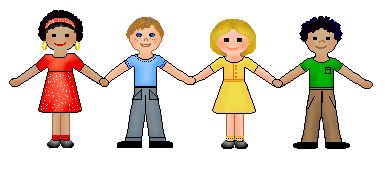A module in the Incredible Years programme discusses incentives and rewards that are offered to children in early childhood environments. This discussion made me think of the role of motivation. What motivates us and our tamariki towards their learning and development in an early childhood setting?
I personally feel that learning in an early childhood environment should be based on intrinsic motivation, and not on an outward reward system. Intrinsic motivation is when the inner self drives children and extrinsic motivation is when rewards are given.
However, accomplishment is driven by motivation and extrinsic motivation can have some side effects as well. For example, children may look for recognition after accomplishing a task and show disappointment when there is none. In a research study conducted at a preschool it was found that children who were not praised for using a particular pen at a table went back when the pens were reintroduced for the pleasure of using the pen again. Those children who were praised earlier for using that pen did not return as no extrinsic motivation was offered the next time (Gonzales-Mena, 2008).
The Vygotskian concept emphasises learning from outside social influences in order to holistically develop and learn. This involves motivation given by teachers to children who lack social skills. The Māori researcher Tangaere argues that Vygotsky's zone of proximal development is relevant to Māori relationships, as older children scaffold learning for younger children and instil that inner motivation required for learning and development (Drewery & Bird, 2004).
Research conducted into the attributes of children suggests a correlation to both positive and negative motivational tendencies. Optimistic children generally attribute their achievements to their own ability or efforts, and are motivated to achieve for themselves rather than to look good for others. Pessimistic children on the other hand lack the motivation and blame their inability if they do not do well. Further research conducted towards pessimism suggest that pessimistic feelings are based on life experiences. Children who have grown up never being praised or rewarded tend to become helpless, and think that there is no point in trying to achieve as they will never succeed. These children lack motivation. The New Zealand researcher John Nicholls suggests that boys are more optimistic about their abilities than girls. Nicholls research showed that a positive feedback offered an effective approach to motivate capabilities and performance (Drewery & Bird, 2004).
Although extrinsic reinforcers are used by many teachers to arouse motivation through offerings, there has been objection to their systematic use. This is because of an apprehension that children become too dependant on them and fail to listen to their own motives. From a humanistic perspective praise is more humanistic than giving children stickers, as praise increases the dependence on intrinsic motivation. Maslow's theory of human needs and his thoughts on self-actualisation are concerned with intrinsic motives (Lefrancois, 2000).
A person's perception and judgement of their own self-efficacy determines to a large extent what they are motivated to achieve.This also directs their behaviour. Bandura suggests that people with strong feelings of self-efficacy tend to be physically and psychologically healthier. As success and failure impact upon our self-efficacy, 'Attribution theory' is to what we attribute the result of our behaviour (Lefrancois, 2000).
In conclusion, motivation defines why people behave the way they do. Learning and achieving are important motive areas for teachers to be aware of. An understanding of why some children expend more effort than others to achieve similar tasks is an area that teachers need to continue investigating. Why we behave the way we do is determined by our motivation.
References
Drewery, W. & Bird, L. (2004). Human development in Aotearoa. A journey through life (2nd ed.). Aucland: McGraw Hill.
Gonzales-Mena, J. (2008). Foundations of early childhood education. Teaching children in a diverse society (4th ed.). New York, NY: McGraw Hill.
Lefrancois, G.R. (2000). Psychology for teaching (10th ed.). Belmont, CA: Thomson Learning.
